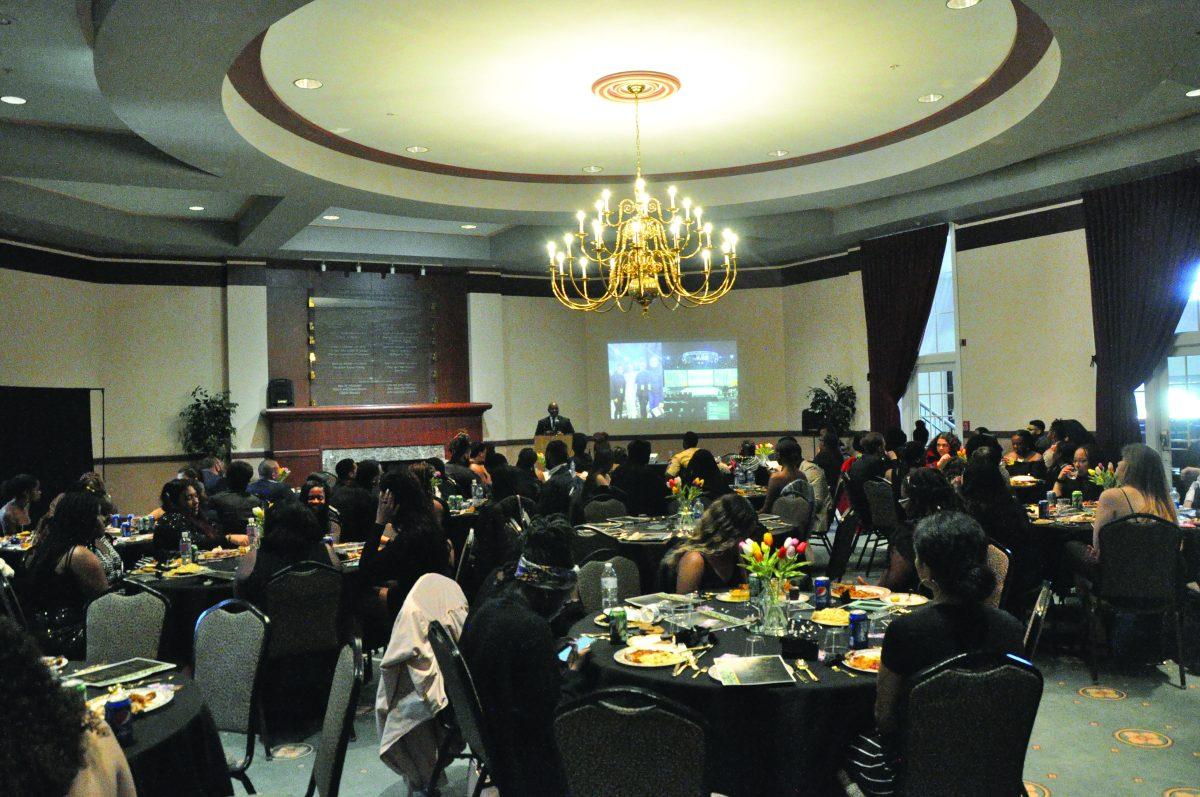Closing out Black History Month with a celebration of black excellence
by CAMERON BOLTON
The Coalition of Black Students held its annual Black on Black banquet in Levitt Hall on Feb. 29.
The theme of the event was ‘stepping into your truth.’ Lunch was served to those who attended the event, which featured two keynote speakers.
“If it’s more like a keynote sort of thing, sometimes I’ll just ask the people who are booking me what’s going on your campus. What would be the most relevant for you and your students to hear, and then I’ll shape a show around it, insert poems here and there,” said FreeQuency, the first speaker.
FreeQuency is a workshop leader, social justice teaching artist, host and performer who read their poetry for the audience to enjoy.
“Other times I’ll be hosting a show or something, so I’ll listen to what other students are saying their poems, and I’ll try and do poems based on what they’re saying to be in conversation with them,” FreeQuency said.
The second speaker was Bryant K. Smith, a workshop facilitator, trainer, speaker, author, and award-winning educator who went over several topics in a prepared speech.
“Most of what happens is I try to find out if there’s a theme to this, whatever event I’m invited to, and I talk to the organizers about any issues that they’ve been facing or some particular topic they want me to address,” Smith said. “My disciple is communication, so I’m very much in tune with pop culture and current events. So I’m very good at taking current events and making them so that the average college student cares about them and understands why they should care about them.”
Besides, Smith said, there might be some audience members who, if the banquet was held in November, might not have felt comfortable if their friends asked why they were attending the event. Since it was Black History Month, it might be more acceptable that they want to go.
“The most important thing that I think I talked about today was having a sense of unity about who you are,” Smith said. “Knowing that who you are doesn’t mean you look down on anyone else, but it gives you a sense of pride to understand that I figured I’m colored, but as long as you are firmly rooted in who you are, you’ll be able to overcome.”
FreeQuency felt that the event happening during Black History Month was a double-edged sword in the sense that as a full time artist, they are ‘always grateful for any opportunity to perform because it allows you to keep maintaining your art.’
Still, FreeQuency continued, they always challenge people who book speakers during black history month to schedule them outside of black history month because blackness is something that is occurring all of the time. So it should also be celebrated, honored, showcased, all of the time as well.
FreeQuency also brought up how it’s a lot easier to get folks to come out to black things during black history month, but in a more critical manner—saying that a real measurement of your impact is to try and host a black event outside of black history month and see how many people come.
“I always hope that my poetry will allow people to just stop and ask themselves what is it that I can or should be doing to contribute towards whether it’s black liberation, whatever liberation that they’re currently working or dreaming towards,” FreeQuency said. “I hope it’s a catalyst at least to start thinking through, and if not, if you’ve already been thinking through it, then to just do something about it, whatever that ‘doing’ is for you. Sometimes that ‘doing’ for me is writing a poem. Sometimes a ‘doing’ for me is organizing protests. Sometimes a ‘doing’ for me is something else, and it’s mentoring people, but figuring out what to do and start doing it. Because it’s going to take a lot of work and work is easier for each of us individually if we’re all holding our parts collectively.”







